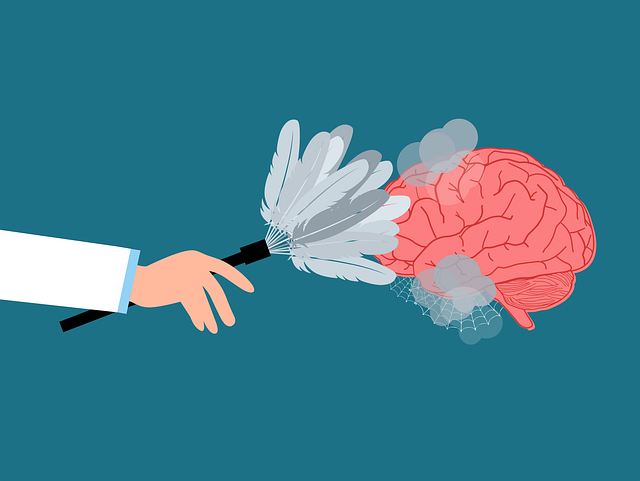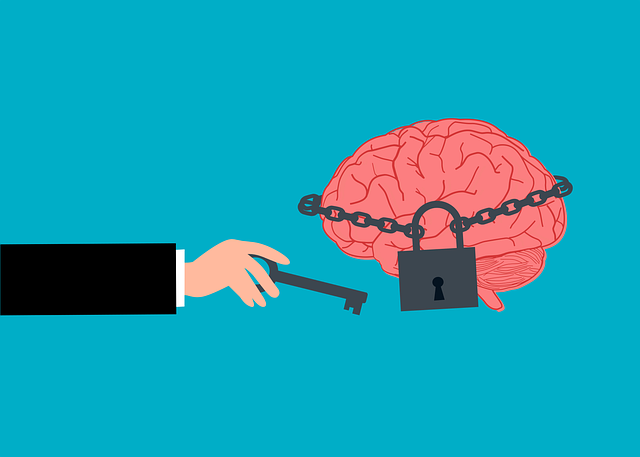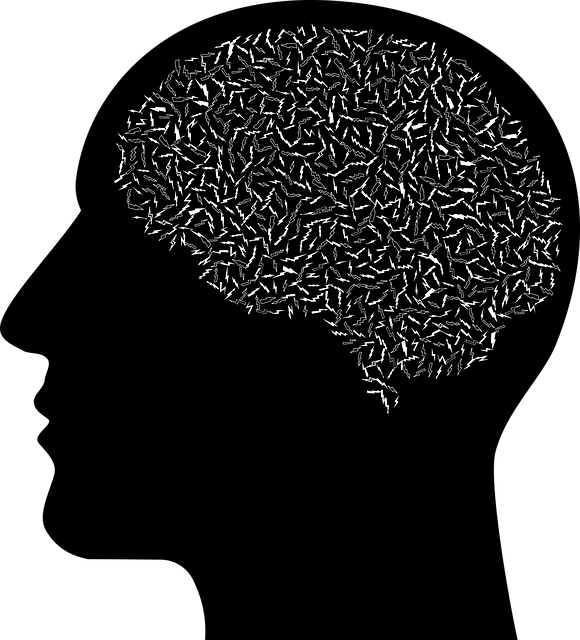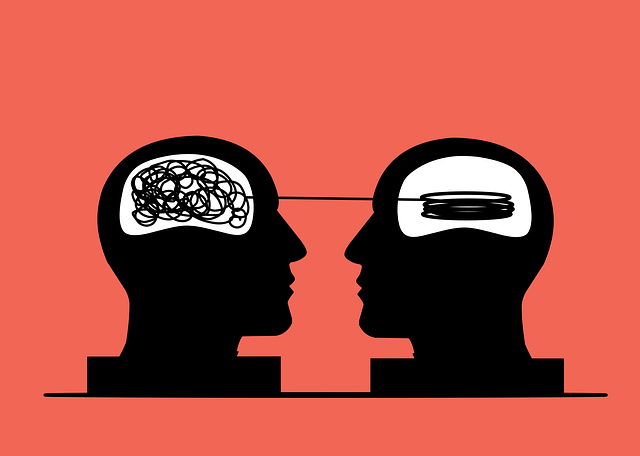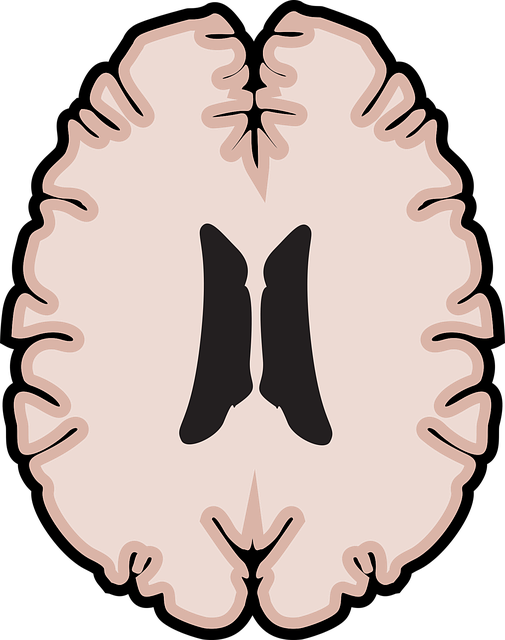Anxiety disorders in adults manifest as excessive worry, fear, and physical discomfort, severely impacting daily life. Cognitive Behavioral Therapy (CBT) is an effective, evidence-based approach, addressing negative thought patterns to manage anxiety. Mindfulness techniques, such as meditation and breathing exercises, enhance self-awareness and emotional regulation. Holistic therapy for adults with eating disorders includes lifestyle changes, support groups, workshops, and cultural competency training for healthcare providers. Integrated approaches like these offer comprehensive care, improving outcomes for those struggling with eating disorders and emphasizing the importance of therapy for adults eating disorders.
Anxiety disorders are prevalent among adults, manifesting as persistent fear, worry, and physical symptoms. This article explores effective management techniques for adults struggling with anxiety. We delve into cognitive behavioral therapy (CBT), a proven approach that helps reframe negative thought patterns. Additionally, mindfulness practices and lifestyle adjustments are highlighted for achieving inner calm. For those navigating adult eating disorders, support groups and community resources offer vital assistance. Discover these strategies for reclaiming control over your mental well-being.
- Understanding Anxiety Disorders: Symptoms and Impact on Adults
- Cognitive Behavioral Therapy (CBT): A Powerful Tool for Overcoming Anxiety
- Mindfulness and Meditation Techniques to Calm the Mind
- Lifestyle Changes for Effective Anxiety Management
- Support Groups and Community Resources for Adult Eating Disorder Recovery
Understanding Anxiety Disorders: Symptoms and Impact on Adults

Anxiety disorders are a prevalent mental health concern affecting adults worldwide. It’s crucial to understand that anxiety presents differently in each individual, but common symptoms include excessive worry, fear, and apprehension. These feelings can be persistent, interfering with daily functioning and overall well-being. Adults struggling with anxiety may experience physical manifestations such as rapid heartbeat, difficulty breathing, restlessness, or insomnia. The impact of chronic anxiety can be substantial, leading to social withdrawal, low productivity at work, and strained relationships.
Effective therapy for adults suffering from anxiety disorders, including eating disorders, involves a comprehensive approach. Coping skills development is essential, teaching individuals strategies to manage and reduce anxiety symptoms. Social skills training can also play a significant role in rebuilding confidence and fostering meaningful connections. Mental wellness is enhanced when these techniques are combined with personalized support, leading to improved resilience and a higher quality of life.
Cognitive Behavioral Therapy (CBT): A Powerful Tool for Overcoming Anxiety

Cognitive Behavioral Therapy (CBT) is a highly effective and evidence-based approach to managing anxiety disorders. This therapy focuses on identifying and changing negative thought patterns and behaviors that contribute to anxiety, offering adults with eating disorders a powerful tool for overcoming their conditions. CBT teaches individuals coping skills development by challenging distorted beliefs and replacing them with more realistic and balanced ones.
By addressing the root causes of anxiety, CBT empowers people to manage their symptoms effectively. It encourages a shift in perspective, promoting mind over matter principles where one learns to control their thoughts rather than being controlled by them. This therapy has proven successful not only for isolated cases but also when integrated into community outreach program implementations, providing a holistic approach to healing and well-being.
Mindfulness and Meditation Techniques to Calm the Mind

Mindfulness and meditation are powerful tools for managing anxiety, offering a chance to calm an overactive mind and cultivate present-moment awareness. Techniques like mindful breathing and body scans can help individuals become more attuned to their thoughts and emotions without judgment. This heightened self-awareness is particularly beneficial for those navigating mental health challenges, such as adults with eating disorders. By practicing regular meditation sessions, one can learn to observe anxious thoughts as they arise, rather than reacting impulsively or getting caught up in a cycle of worry.
Integrating mindfulness into daily routines can foster resilience and emotional regulation. Social Skills Training and Community Outreach Program Implementation initiatives can further enhance these practices by providing support networks and shared experiences. Mental Illness Stigma Reduction Efforts also play a crucial role in encouraging individuals to explore mindfulness as a therapeutic approach, ensuring they feel comfortable accessing these calming techniques without fear of judgment or misunderstanding.
Lifestyle Changes for Effective Anxiety Management

Anxiety management often involves significant lifestyle changes, which can be just as effective as traditional therapy for adults with eating disorders. This includes adopting healthier habits like regular exercise, sufficient sleep, and a balanced diet. Engaging in stress management workshops or joining support groups can also provide valuable crisis intervention guidance and enhance coping mechanisms.
Additionally, cultural competency training for healthcare providers is essential. Understanding the unique needs of diverse populations and incorporating mindfulness practices into care plans have been shown to improve outcomes. By integrating these lifestyle adjustments and specialized training, individuals can better navigate stress, reduce anxiety symptoms, and foster overall well-being.
Support Groups and Community Resources for Adult Eating Disorder Recovery

Support groups play a vital role in the recovery journey for adults struggling with eating disorders. These peer-led gatherings offer a safe and non-judgmental space where individuals can connect, share experiences, and gain valuable insights from others facing similar challenges. Many support groups are specifically tailored to address eating disorders, providing a unique platform for emotional healing processes and inner strength development. By participating in these groups, individuals can benefit from the collective wisdom and understanding of their peers, fostering a sense of community and belonging.
Community resources, often overlooked, can significantly enhance therapy for adults with eating disorders. Local support organizations and healthcare provider cultural competency training initiatives are valuable assets that facilitate recovery. These resources not only offer specialized services but also promote cultural sensitivity and awareness, ensuring individuals from diverse backgrounds receive tailored care. Through these community-based programs, adults can access a range of services, including counseling, education, and social activities, all designed to support their journey towards recovery and overall well-being.
Anxiety disorders can significantly impact adults’ daily lives, but managing them is achievable. By combining evidence-based therapies like Cognitive Behavioral Therapy with mindfulness practices and lifestyle adjustments, individuals can effectively navigate their anxiety. Furthermore, leveraging support groups and community resources dedicated to adult eating disorder recovery provides a crucial network of understanding and encouragement. With the right tools and support, adults can overcome challenges, enhance well-being, and reclaim control over their lives. Remember, seeking help is a sign of strength, and there’s hope for a calmer, more fulfilling future.
